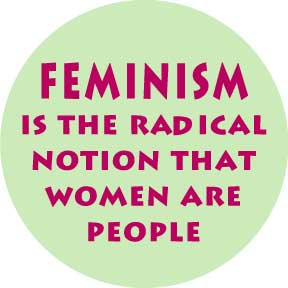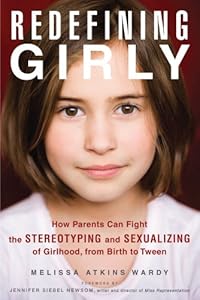In all the discussions I've been involved in lately about women and clothes, I have been repeatedly asked a rather funny question, but I suppose I'm not greatly surprised. In fact, the question proved the point I was trying to make. The question was "So, just how should a woman present herself?"
This is not necessarily coming from those confused about what constitutes "appropriate" clothing, but more from those trying to object to criticisms of their choices, and getting defensive when the question of "what my clothes say about me" comes up.
There are two things going on. Both are
lies.
The first thing, as I said, is "I wear whatever I please". Bollocks. Absolute bollocks.
If it were true, women would not be agonizing over what to wear. If one truly dresses to please oneself, all decisions are easy. More of a "green or blue today?" decision.
Even when that is possible (and it isn't always, but I'll come back to that), it is incredibly rare for a woman to ignore outside influences on her choice of clothing. She has been conditioned
from birth to worry about what other people think of the way she looks. Even if it has been done in the kindest and best-intentioned ways. Every time you tell a girl "you look pretty in that" she also hears "but not in
that". Every time, in fact, you tell her that she is pretty, you are saying "therefore you are better than if you were not pretty". And many, many more messages like that.
There is nothing wrong with beauty. We do not wish to live in an ugly world. Which of these pictures do you prefer?
These are both images from Kenya. Ask yourself, is Kenya ugly or beautiful?
Many things we do every day involve aesthetic choices. We choose the more attractive (to us) of two or more things. Many things can be more or less visually appealing, including food, even the packaging of a food product. It is natural, and even good to seek beauty.
So, no, there is nothing wrong, on a personal basis, with trying to be more beautiful. The question remains, beautiful to
whom? When you look in the mirror, are you thinking "yes, I like that on me", or are you thinking "yes, the world will like that on me"? It might be harder to answer than you think.
I hear many intelligent people go on at length about how they dress to please themselves, and they are lying through their teeth. Because if you catch them off-guard, you will hear them say "Oh no, I couldn't wear that". But you like it. "Yes, but I couldn't wear it".
The honesty of it all is too much for most people actually. It requires them to admit their doubts, their self-esteem issues, their deepest fears. There are very, very few people who honestly, truthfully wear what they please.
For most of us it's situational. There are occasions when there are certain expectations, and we follow them almost as a point of etiquette. There are extremes we won't push, because it might cause more offence than is acceptable, or worth it. Decisions, decisions.
As I have got older, my decisions on what to wear so as not to disturb the peace, have changed. But then so has society.When I was young, the expectations were different, so any rebellion I chose was different. This is an ever-changing thing.
What doesn't change is the need to question it all, and the need for questioners. Because if we had never had rebels, we'd still dress like this:
It doesn't matter if you like it or not, you had no choice, and that included a hot day in August. You couldn't slip into a strappy little top, and a pair of capris. Not only did fashion have to change, attitudes did. Attitudes are led by rebels.
Rebels lead, but they get misunderstood. In fact the rebellion is misunderstood. The entire women's movement went off the rails. It began trying to get women the right to go out to work, and has led to women being
expected to go out to work.
The whole point of rebellion is to create choice, not just new expectations. This always gets forgotten.
So, between expectations, and sub-conscious aversion, we generally, and at the very least not always, do not wear what we please.
The 2nd lie is that beauty is more about a person's personality and character. That only applies if you are blind. We all appreciate a good-looking thing, be it a human being, a horse, a car or a sunset. So why do we need to try to convince ourselves otherwise?
Of course a person's personality and character is
more important. Yes, without question, I would rather be with kind, honest, fun people than "pretty" people any time at all. I do not choose my friends based on how they look, and if I were that shallow, I wouldn't deserve friends at all. And most of us prefer "interesting" over "classical beauty" any day of the week, if we think about it. Artists just love wrinkly old people. Most of us prefer old things to new things, much of the time, when it comes to looks, actually. We lavish praise on "weathered" buildings. Choose "distressed" furniture. Enjoy the "patina" of antique metals, and so on.
Which brings me to something I think is where we all go wrong when we are considering what is attractive.
Beauty is good, perfection is not. Quite apart from the impossibility of defining what is perfect, if it were achievable it would be BORING. We may describe something as perfect, but all we are saying is simply that we like it the way it is. If there was, for example, such a thing as perfect car, we'd all have the same one, and they wouldn't bother making any other type. Tastes vary. Sometimes certain things are more popular than others, in a contest, my guess is that roses would win out over dandelions, but that doesn't mean roses are a perfect flower.
When we seek beauty, we often make the huge mistake of seeking perfection. Perfection isn't beauty. If you paint your house in the nicest colours, with the greatest care, is it perfect? Isn't that a silly question? It's just one house, with just one choice of possible colours, and you can always make a better job of it. So we look at the result, find it pleasing (or change it) and move on.
Why do we not apply the same sensible attitude with people?
Why would a woman drive herself crazy over her appearance, and in the next breath tell you that she believes that beauty is in the eye of the beholder/is only skin deep/doesn't prove anything/is all vanity?
According to Nietzche, vanity is fear of appearing original. I think there's something in that. There's certainly fear involved. Probably more than one fear. Fear of being thought "lesser". Fear of being thought dull, or conversely
too colourful.
A long time ago, a friend said to me "We're doomed if we do, and doomed if we don't. If you dress fashionably, please say you're a sheep. If you don't dress fashionably, people say you're a frump. I don't want to be a sheep or a frump." I suggested, naturally, ignoring it all, and wearing what you like, but this was rejected as unrealistic. Dressing ourselves, apparently is a social norm, and much more important than just what we wear, it's all about the message it conveys.
YES. I agree. But I don't agree that it should be difficult. I think we are choosing the wrong messages.
Of course, we can't always assume that the intended message is the one received. That doesn't always even follow if we use words.
But somewhere between a shallow, pathetic, drone-like vanity, and "having no self-respect" is a sensible middle line, that is not uncomfortable, does not get us in debt, sends out the right messages, and is actually a pleasure rather than a stress. When we dress LIKE THAT, we are truly beautiful.



















